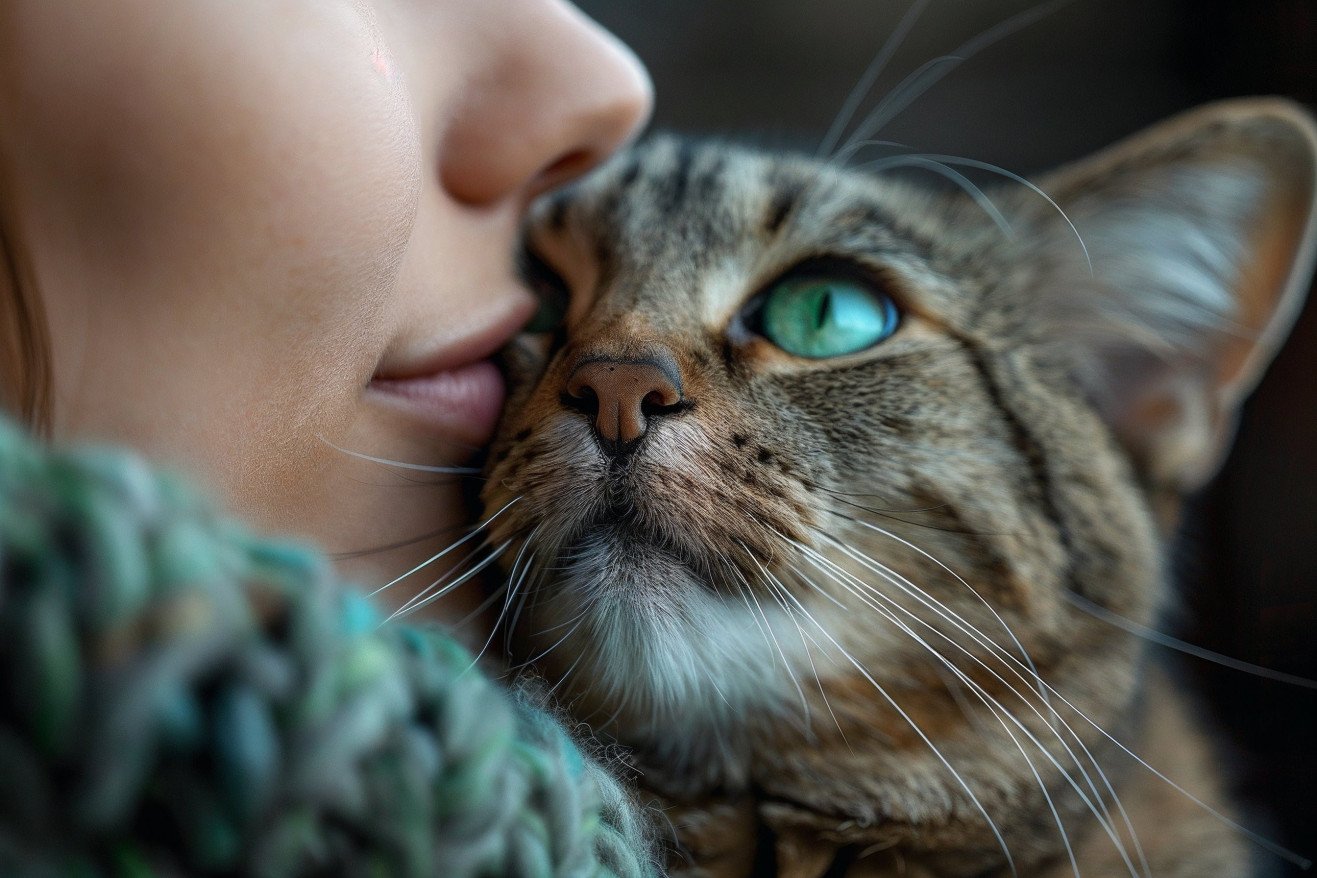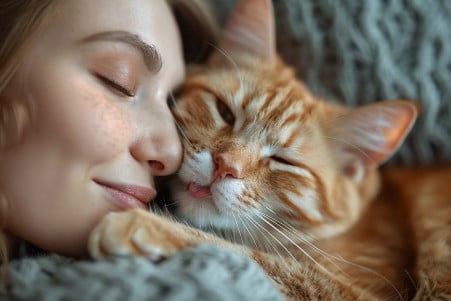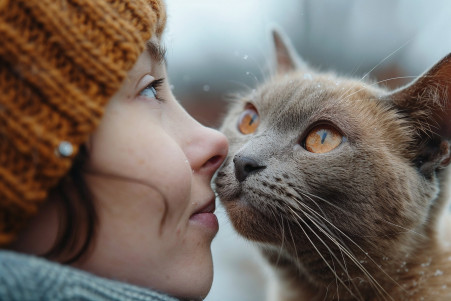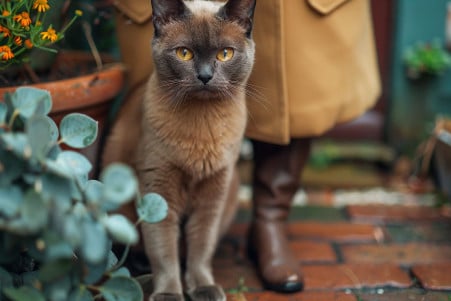Why Does My Cat Sniff My Face? The Amazing Sense of Smell
30 April 2024 • Updated 30 April 2024

Have you ever wondered why your cat sniffs your face, even when you've just washed it? Cats rely on their sense of smell to learn about their world and the people and animals in it. So when your cat sniffs your face, they're smelling your scent and using it to recognize you as part of their family. It's also a way for them to keep tabs on your scent for any changes that could indicate a health issue.
In this article, we'll take a deep dive into the world of a cat's senses, drawing on studies from animal behaviorists, biologists, and veterinarians. These studies help us understand the amazing powers of the feline olfactory system and provide insight into how cats use scent to communicate, orient themselves, and make sense of the world. By learning about this part of your cat's biology, you'll come to understand the complex way they perceive and understand the world through their sense of smell.
Why does my cat sniff my face?
Scent Marking and Territorial Behavior: How Cats Claim Their Humans
Cats have scent glands on their faces, heads, and cheeks that release pheromones, as noted in research referenced by Rover. When cats rub their faces on people and objects, they are leaving their scent behind and marking their territory. Face rubbing and nuzzling are ways for cats to claim their owners as part of their territory and social group, according to PetMD.
Kittens learn this scent-marking behavior from their mothers, and it becomes an important form of communication within the cat community, as explained by Hill's Pet. Male cats are more likely to mark than female cats, according to research. While some pheromone functions are unknown, others are involved in mate attraction, object/area marking, and identifying humans/animals as part of the cat's social group.
If your cat is rubbing against you and cuddling constantly, it may be a sign of separation anxiety as your cat tries to alleviate their distress. On the other hand, excessive rubbing can be a sign of overgrooming, pain, or head pressing, so make sure to look for signs of infections, injuries, fleas or allergies and consult a vet if the behavior continues, according to Rover. By learning about this scent-marking behavior, cat owners can better understand and value its role in feline communication and bonding.
The Allogrooming Instinct: Why Do Cats Lick Your Face?
One reason your cat may lick your face is to engage in "allogrooming," or the grooming of another individual, according to Pumpkin. This behavior is a holdover from kittenhood, when a mother cat would lick her kittens to groom them and show them affection, according to Catster.
While licking doesn't actually clean their owners, cats believe it satisfies their role as groomers and helps them integrate their people into their social group, according to TheCatSite. On the other hand, face licking can also be a way for cats to get attention, show affection, or mark their territory with their scent, according to PetMD.
That said, excessive face licking can be a sign of anxiety, stress, or an underlying medical condition that needs to be treated, according to Pumpkin and Catster. Knowing why your cat is licking your face can help you respond in a way that helps you and your cat build a stronger relationship.
The Kneading Ritual: What Your Cat Is Trying to Tell You
Kneading, or 'making biscuits,' is an instinctual behavior in cats that can be traced back to kittenhood, according to research by The Conversation. Kittens knead their mother's abdomen to stimulate milk production, and many cats carry on this behavior into adulthood, says Scientific American.
Kneading is often a sign of relaxation, comfort, and contentment in cats, who associate the behavior with the security of nursing from their mother, according to Rover. Cats may knead their owners to bond, mark their territory with scent, or get attention and love, says Blue Cross.
That said, cats that knead too much may be signaling that they're in pain, anxious, or dealing with other issues, according to PetMD. Knowing what your cat is trying to tell you when they knead can help you better understand and meet their needs.
Headbutting: A Sign of Trust and Affection
Headbutting, or 'bunting,' is the act of a cat pressing its head against a person or object and then rubbing its cheek, according to PetMD. Cats do this to leave their scent behind and create a communal 'colony' scent, which helps them form connections and claim their space, says The Rescue Vets.
Although headbutting isn't necessarily a sign of affection, it does mean that the cat is comfortable and trusts the person it's headbutting, according to Argos Pet Insurance. In fact, headbutting is more common in confident, dominant cats than in timid or nervous cats, according to Cole & Marmalade.
Headbutting can also be a way for cats to ask their owners for attention, affection, or petting, notes Daily Paws. Knowing this, cat owners can better appreciate the trust and connection their cats are trying to build.
Strengthening Your Relationship: How to Better Understand and Communicate With Your Cat Through Scent
Understanding and reacting to your cat's scent-based behaviors can help you build a better relationship with your pet. When your cat sniffs, rubs, licks, kneads, or headbutts you, make sure you recognize and accept these actions as a form of communication and love, as explained by The Rescue Vets. Petting or scratching your cat when they do these things can help them associate the action with a positive response and can help you bond, according to Rover.
That said, make sure you're also listening to your cat and not pushing them to interact if they don't want to. If your cat seems uncomfortable or overstimulated, make sure you're giving them the space they need. By learning to understand your cat's scent-based behaviors and responding to them in a positive way, you can build a more rewarding and meaningful relationship with your pet, according to PetMD.


